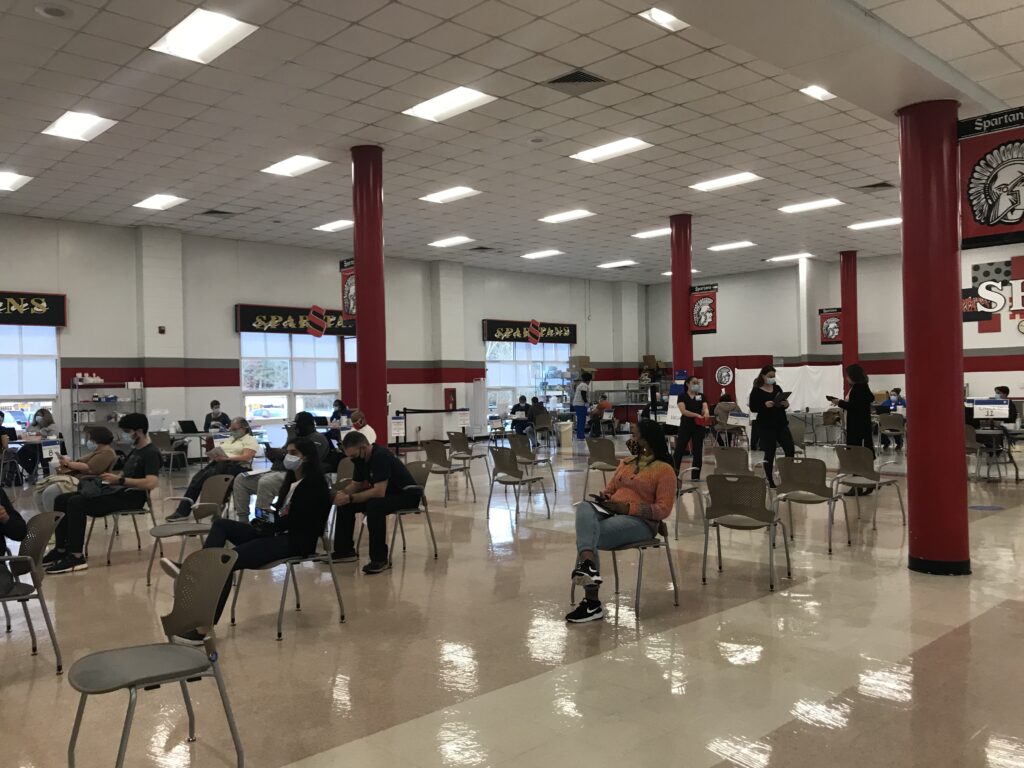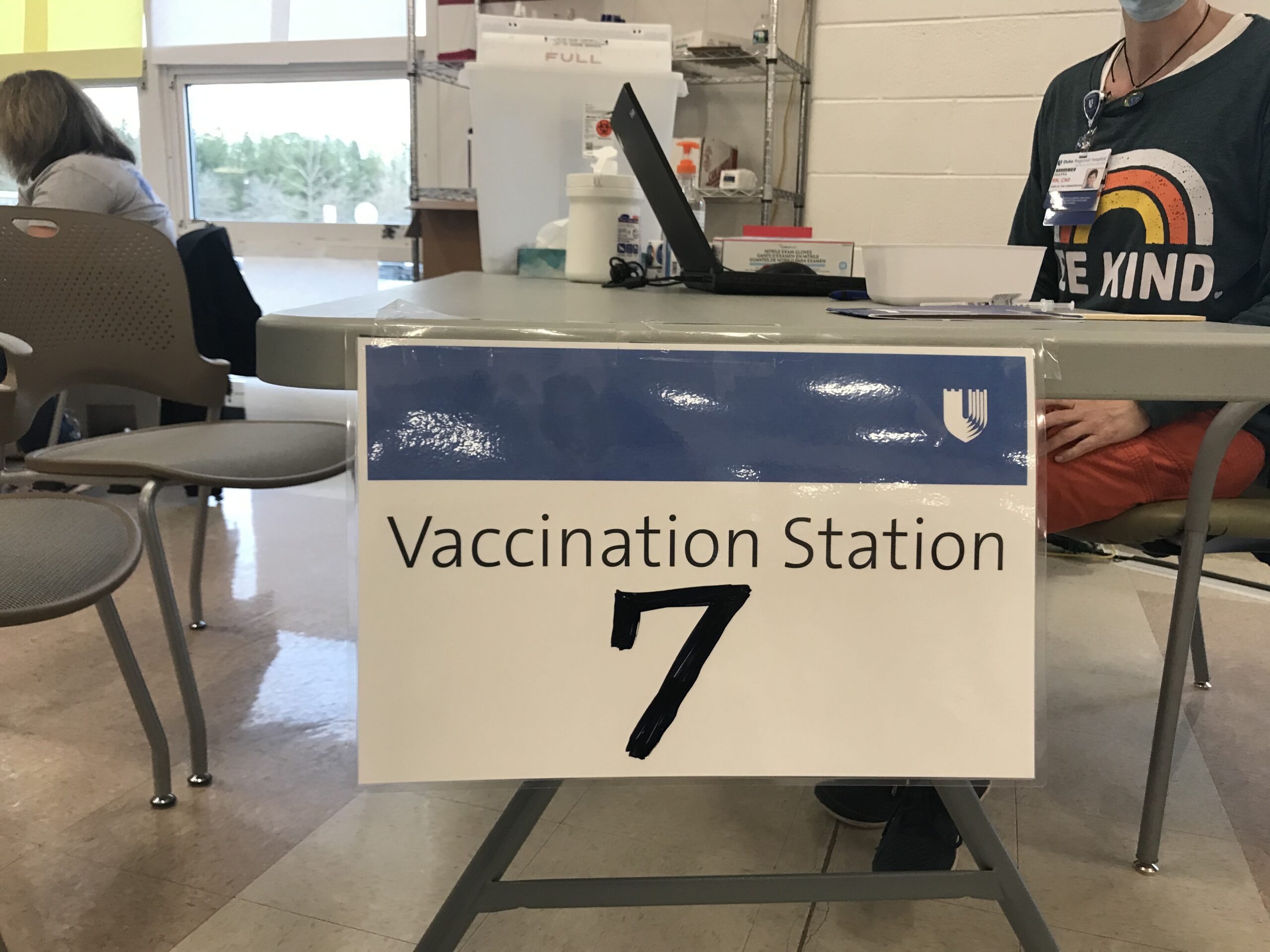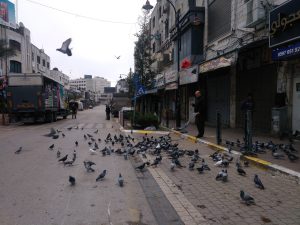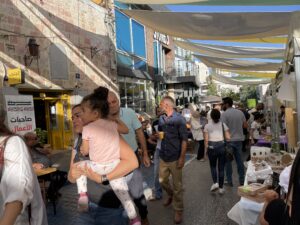Our daughter is enjoying sugary American food, but for her father, North Carolina brings something sweeter: a COVID-19 vaccine he wouldn’t yet get in Palestine.
Eating Animals
“Ima, which animal did they kill to make the cold cuts?” six-year old Forat asked, biting into her sandwich.
“A pig or a cow,” I said and read the package label. “Pig,” I declared and then rebuked Forat’s father, Osama: “Do you know that they also added sugar, corn syrup and twenty other ingredients whose names I can’t pronounce?” In our temporary apartment in Raleigh, North Carolina, where we moved for Osama’s sabbatical, the kitchen is not kosher. I consented to Osama and Forat buying non-kosher meat, but no one asked permission for the sodium phosphate and corn starch.
“And which animal do they kill to make hamburger?” Forat asked.
“Cow. Unless it’s a turkey burger and then – turkey.”
“And what about chicken?” she asked, using the English word. “What do they kill to make chicken?”
“Chicken,” I answered, and when Forat appeared confused, I added the word in Arabic, jajeh, to help her connect the chickens we see pecking and squawking in the courtyards of Ramallah homes to the drumstick that appears on her plate. Ever since she was small, I have been open with Forat about the source of the food she eats, to encourage her to make informed decisions about whether it’s ethical to eat animals. So far, she thinks it’s OK.
We have been in Raleigh two months, and Forat is enjoying American food. Her school serves her sugary breakfast cereal, chocolate milk, hamburgers and lots of other processed and sweetened foods that she could only dream of getting at home. In-person school resumed recently, and cafeteria meals are a bright spot for Forat. She’s dealing with gaps in her English literacy preparation and is struggling to make friends, in a situation in which she’s supposed to keep two meters away from the other children.
Osama is eligible for a vaccine
For Osama, the United States brought news even sweeter than Forat’s junk food: eligibility for a COVID-19 vaccine. The vaccine roll-out in the U.S. is slower than in Israel, but Palestinians like Osama are not eligible even for the excess vaccines that have accumulated in Israel, some of which have already been sent to Guatamala and Honduras. Here in Raleigh, his turn came before mine, because he smokes.
I registered him at four different vaccination web sites, and one day he got a text message asking him to report to a huge high school that had been turned into a vaccination center. We drove along wide roads, past huge houses and the magnolia trees that symbolize the American South. We felt expanse, so different from Ramallah. At the school, the clerks and vaccinators, all women, sat at orderly work stations. At the last stop, a polite, quiet nurse named Joanna explained the process and then rolled up Osama’s sleeve and jabbed him with a syringe. We continued to the observation area.
“Do you know how many months you would have to wait to get a vaccine in Ramallah?” I asked Osama.
“The trip here was worth it just for this,” he said.

The Jabalia refugee camp, too, started vaccinating
We picked up Forat and Adam from school and preschool, and I cooked tofu with rice. Osama left the table to answer a call from his niece in the Gaza Strip. In previous conversations, he had tried to persuade his mother to get a COVID-19 vaccine. A shipment of Russian-made vaccine had arrived in Gaza, a donation from the United Arab Emirates, and elderly people were eligible for it. But Osama’s two brothers, who live with their mother in the family compound in the Jabalia refugee camp, hesitated.
While Osama spoke to his niece, Forat picked the broccoli off her plate and announced that she had no intention of eating vegetables and that I shouldn’t bother threatening her with cancelling dessert, because her teacher had already given her a lollypop today, and she didn’t need any favors from me. Then she continued her research.
“Ima, which animal did they kill to make tofu?” she asked. I explained that soybean is a plant that doesn’t have parents.
“Salmon too?” she asked.
“No, salmon is a fish that has parents. To eat salmon, you need to kill a salmon.”
Osama returned to the table, smiling.
“My mother got vaccinated, and even Omar and Mohammed managed to schedule an appointment,” he updated. “Everything was transparent, through the health ministry, no need for connections.”
“The situation in Gaza is better than in the West Bank,” I said, surprised. A tiny number of health workers and Palestinians working in Israeli workplaces got vaccines from Israel, but everyone else in the West Bank is waiting for the Palestinian Authority to get more supply. There was little transparency regarding distribution of the few doses that reached the West Bank. In addition to medical teams, senior Palestinian Authority officials, their families and friends, and players on the national football team got priority. Our friend Amjad sent us daily updates about his attempt to get a vaccine for his 74-year old mother, who is a cancer patient, through the health ministry in Ramallah, at a time when infection rates in the West Bank are sky-high. Forat’s school and Adam’s preschool there have been closed for two months, and every day we get news of another friend or neighbor sick with COVID-19.
“Yeah,” Osama answered. “Gaza is the place to be. My mother got a vaccine even without joining the football team.”
This post was also published on haaretz.com on April 7, 2021:




Nice. Your writing reminds me of Sayed Kashua.
I am following you and your lovely family in that journey. In my dream, I would like to build a family like yours.
I am sad to read this post today, just after another very blood day in Gaza and Israel.
Thank you.
It’s a bit surprising that Gaza is doing a better job than the West Bank. I guess the PA is being its usual, corrupt, and incompetent self. It is probably more urgent to vaccinate in Gaza than in the West Bank though due to the higher population density. I really like that you tell your kids that meat comes from animals and don’t try to hide it from them. That is some very good parenting right there.
It’s going to take a while to roll out COVID vaccines to the whole world. It’s easy if you’re from a country like the US or Israel to think that COVID is over or will be over soon. But in a lot of places it’s still extremely bad.
Thank you!
Umm Forat, we’ve got to clone you!